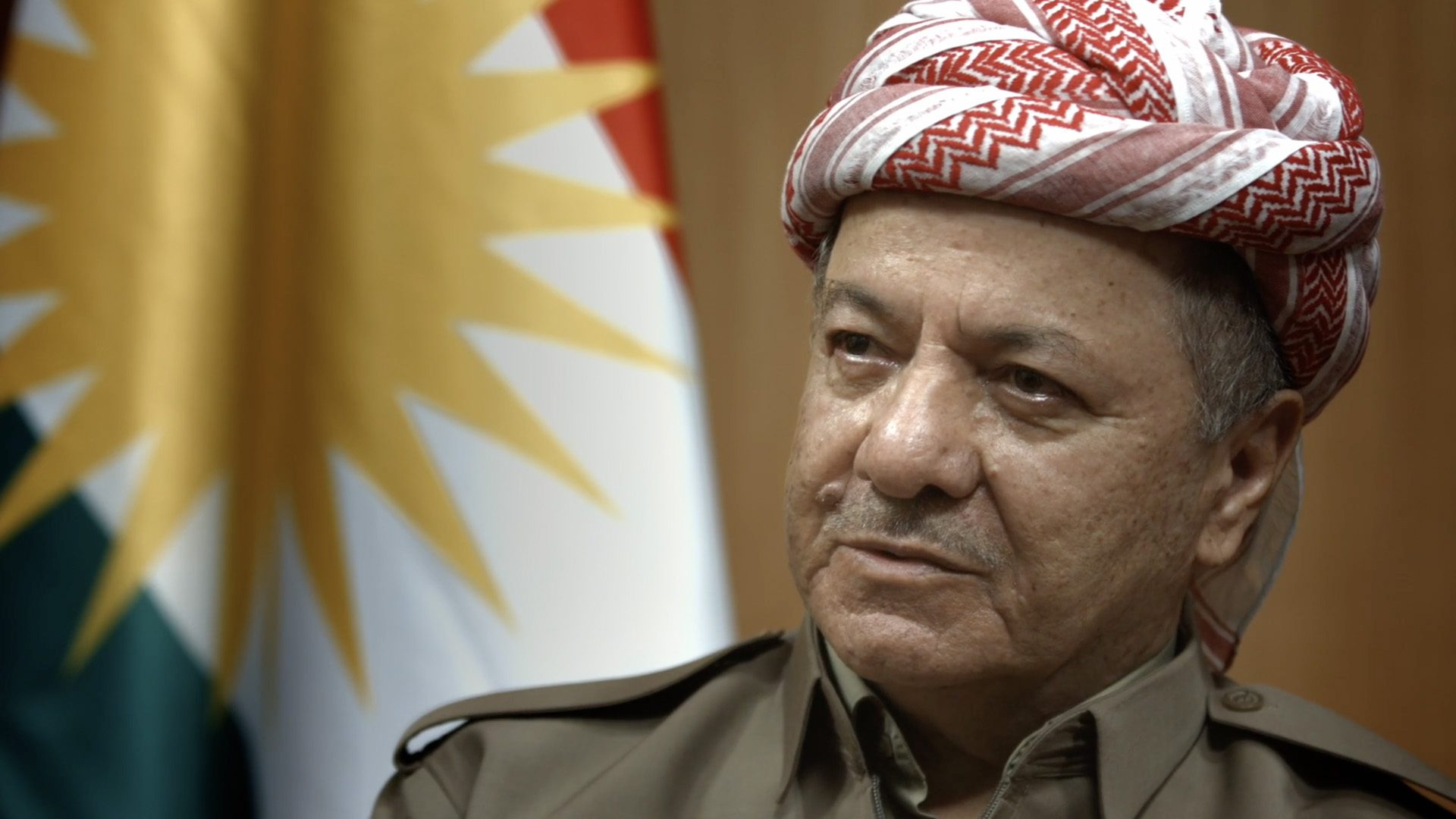The previous year, the Ba’ath Party had seized power for the second time in Iraq and escalated its conflict with the Kurds.
Using advanced weaponry purchased from Western nations the Iraqi government attacked Kurdish communities across northern Iraq and relaunched its ‘Arabisation’ programme in the Kurdish populated areas of Kirkuk
The Iraqi army, backed by local militias, was deployed to evacuate or destroy rural Kurdish settlements. As sources of food, shelter and arms, these villages had proved the lifeblood of the Kurdish resistance movement.
Iraqi militias had devastated rural communities across Kurdistan, driving Kurdish farmers from their homes and giving their land to Arabs from central and southern Iraq
These Iraqi forces devastated rural communities across Kurdistan, driving Kurdish farmers from their homes. Their land and property was then offered to Arabs from central and southern Iraq, who had been given financial inducements by the state to relocate their lives.
The Kurdish leader Mullah Mustafa Barzani decided to strike back. His aim was to execute a military operation that would damage the oil fields run by the Iraqi Petroleum Company (IPC) in Kirkuk, an international conglomerate headquartered in London, and economically damage the Iraqi government in the most public manner possible.
The secret mission had three objectives. The first was to alert the international community, in particular the British, that Iraq was attacking civilian communities across Kurdistan with weapons bought with money raised from the sale of Kirkuk’s oil.
The second was to interrupt the flow of petroleum from one of the world’s richest oil fields and disrupt Iraq’s foreign trade. And the third was to force the ruling Ba’ath Party back to the negotiation table, to agree peace and recognise the Kurdish right to political autonomy.
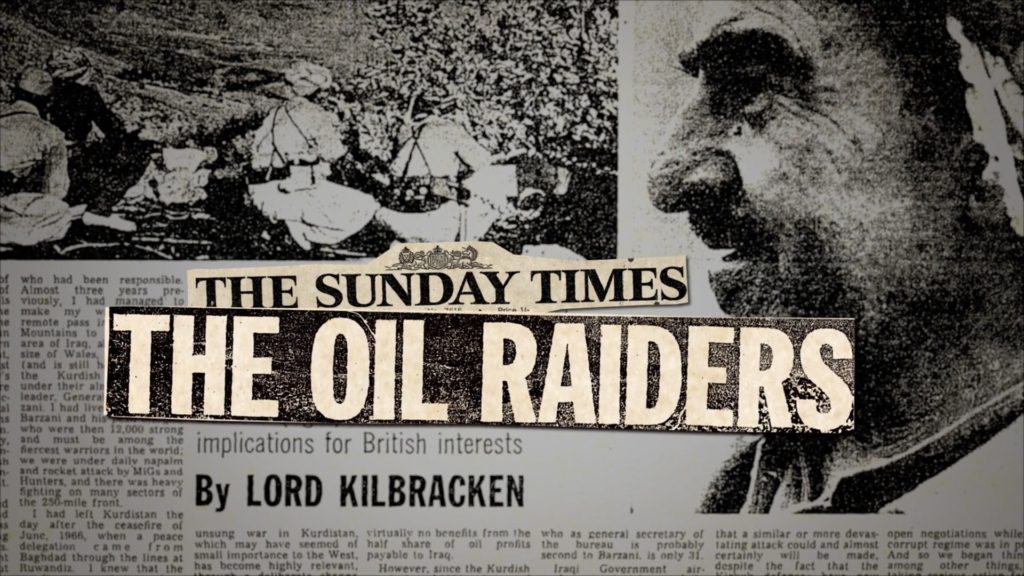
In 1969 Mullah MUSTAFA BARZANI planned a daring attack on Kirkuk’s oil installations to embarrass the Iraqi regime and the British government.
In 1966, similar talks had led to a peace agreement with Iraq’s Prime Minister Abdul Rahman al-Bazzaz. However, Barzani’s deal with al–Bazzazz had foundered after military hardliners forced the Prime Minister to resign his position.
Kurdish demands that Kirkuk be included in an autonomous region under KDP control, and for the cessation of all ethnic cleansing measures, angered the military faction within the Iraqi government, which installed Naji Talib, a former major general in the Iraqi army, as his replacement.
Once in power, Talib simply refused to honour the al-Bazzazz declaration, and the negotiations with the KDP and Barzani disintegrated.
The stakes were therefore high for Barzani and the KDP, and their mission to attack Kirkuk’s oil installations was conducted with great secrecy.
With the Iraqi government refusing to negotiate a peace agreement, the stakes were high for General Barzani and the KDP
The execution of the plan began in late 1968, when the KDP assembled a small team of Israeli military specialists to instruct peshmerga in the precision deployment of long range mortars and cannons.
To coordinate the mission, General Barzani appointed one of the Kurdish movement’s brightest and bravest commanders, a young Kurdish engineer named Sami Abdul Rahman.
Rahman had studied in the UK at Manchester University and the London School of Economics before returning to Iraq to work as an engineer in the Oil Ministry until the Baathist coup of 1963. He was one of Barzani’s most trusted aides.
Rahman’s mission began with reconnaissance. In December 1968 he set out with two companions on foot towards Kirkuk. Disguising themselves as sheep traders, they reached the outskirts of the oil fields, collected the necessary intelligence for the attack, and then returned to their headquarters high in the Zagros mountains, near the borders of Turkey and Iran.
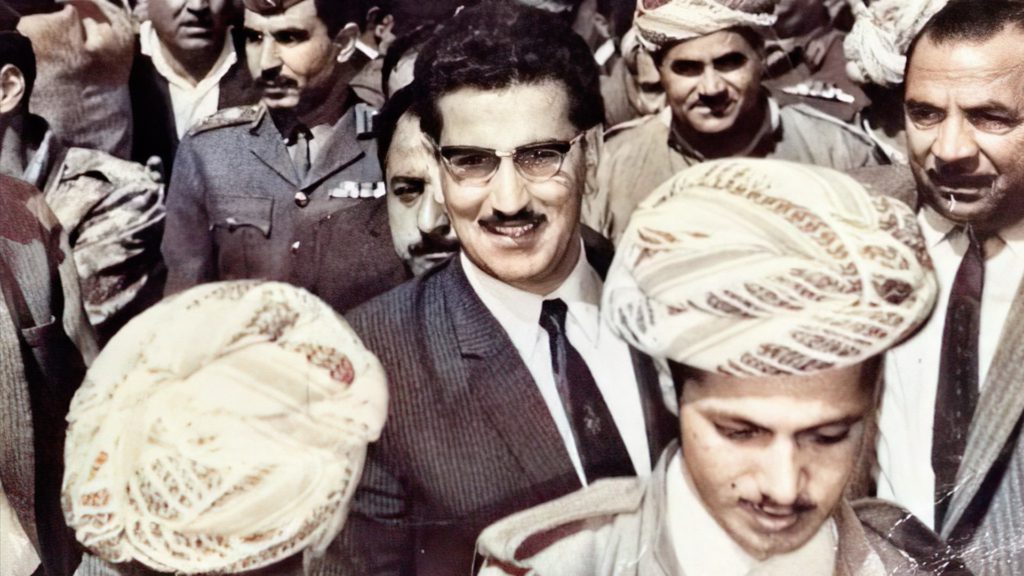
A young Kurdish engineer named SAMI ABDUL RAHMAN was chosen to lead the clandestine attack on Kirkuk’s oil installations. The unit he assembled was named ‘Halgurd’, after Iraq’s highest mountain.
On 23 February 1969 Sami Abdul Rahman launched the operation in earnest. He led a 200-man strike force who carried their heavy weaponry on a caravan of 100 mules, traversing snow-covered terrain to reach a small village north and east of Kirkuk.
Using this village as a base, Rahman sent raiding parties out to requisition vehicles, so that his men could quickly establish their position, carry out what needed to be done and then escape into the night via rural roads.
He identified five routes leading to optimal firing positions that overlooked the Kirkuk oil installations they were targeting. Sami positioned small peshmerga units around each of these firing positions to resist any Iraqi counter attacks, and gave his strict orders to cover the withdrawal of their main force – to the last bullet.
‘The dangers were enormous,’ says Sirwan Abdul Rahman, his son, when interviewed by the Kurdistan Memory Programme (the KMP) in 2019. ‘When I think what they were doing today, it strikes me as a crazy undertaking. One small mistake and my father and his men could easily have been caught and executed on the spot.’
Sami Abdul Rahman positioned small peshmerga units around firing positions overlooking the oil installations, and gave strict orders to cover his force’s withdrawal – to the last bullet
Fully aware of the stakes should they be captured, Sami Abdul Rahman’s Kurdish commando team successfully reached their firing positions without detection.
General Barzani’s son, Masoud, who was at the time the head of the Kurdish intelligence service, Parastin, played a crucial role in the Kirkuk operation.
‘We had spread misinformation that our peshmerga were going to attack the Iraqi garrison in Erbil and the Governor’s Office there,’ he tells the KMP in 2019.
‘So because of their limited troops strength at that moment, the Iraqis were obliged to dispatch a regiment to the outskirts of Erbil to strengthen their positions. Once the regiment marched to Erbil, our peshmerga struck.’
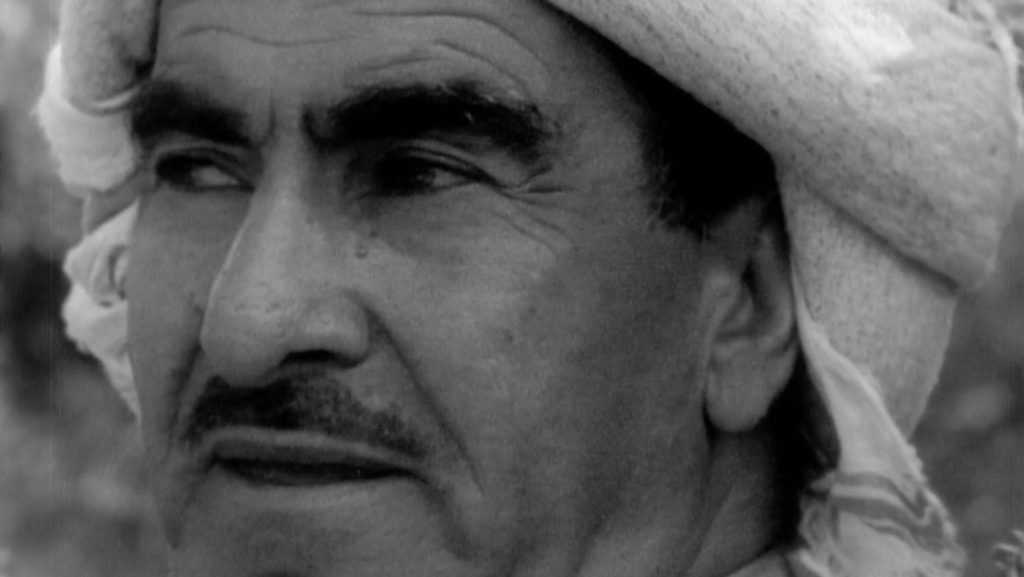
Legendary Kurdish leader Mullah MUSTAFA BARZANI, warned the United Nations that the Ba’ath Party was planning a mass genocide in Kurdistan, but his appeals were ignored.
The attack on the IPC oil installations was launched just before 9pm on 1 March 1969 at New Baba on the outskirts of Kirkuk. The peshmerga team later recalled that the moon brightly illuminated their targets in the clear night conditions.
In their opening salvo, Sami Abdul Rahman’s peshmerga force fired six 120mm mortar shells. These exploded at the heart of the giant oil processing plant, creating panic among the night workers at the installation.
Their barrage lasted for about 90 minutes, the last of the 117 shells falling just after 10:30 pm.
“When I think what they were doing today, it strikes me as a crazy undertaking – one small mistake and my father and his men would have been caught and executed on the spot”
‘Twenty minutes later an Iraqi force of about 1,000 men approached them along the main road from Kirkuk, one of the routes my father had anticipated they would take,’ says Sirwan Samil Abdul Rahman. ‘His team were forced to retreat.’
With time rapidly running out, the principal group of peshmerga hurried to load their equipment onto the back of the vehicles, before revving their engines and vanishing into the night.
At 1am in the morning, after hours of driving, several vehicles in the Kurdish convoy switched on their headlights, assuming they were safe. It was a big mistake.
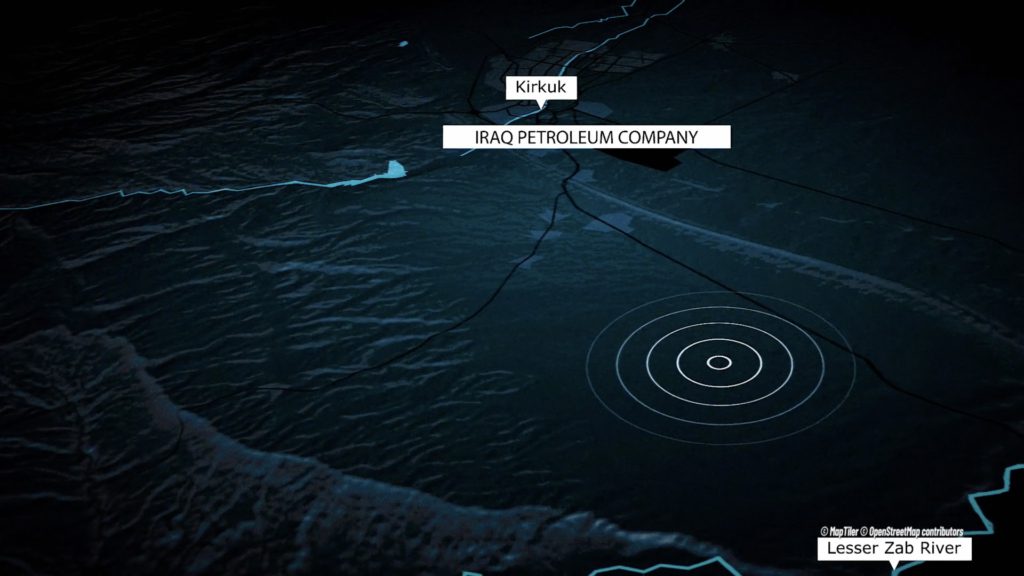
Just before 9pm on 1 March 1969 the peshmerga units launched their attack on Kirkuk’s main oil processing plant. The shelling lasted 90 minutes.
Out of nowhere Iraqi MIG jets opened fire on the convoy, injuring five peshmerga. Having turned their lights off, they managed to seek cover from the planes in the dark, but the Iraqis had been alerted to their location.
Later that morning, the Iraqi jets strafed them again, destroying three vehicles. However, there were no casualties and Sami Abdul Rahman’s team successfully evaded Iraqi fire once again.
The KDP leadership soon learned that their raid on the IPC oil installations had been a resounding success, as oil drilling at the installations had been temporarily suspended, causing great short term damage to the Iraqi economy.
The Ba’athist government tried to play down the significance of the operation and refused to acknowledge the identity of the attackers. However, the KDP raid made waves in London where the IPC was headquartered, with the attack on its Kirkuk installations being covered by the BBC and other international news sources.
Thinking they were safe at one hour past midnight, the Kurdish convoy turned on their headlights and were immediately fired upon from above by Iraqi MIG jets
The loss sustained by the Iraqis was clearly significant: Kirkuk’s oil installations produced almost 55 million tons of oil in 1968 and made an annual profit of more than 300 million pounds sterling.
After the 1969 operation the KDP’s fight with the Iraqi government intensified and their battlefield successes forced the Ba’ath Party back to the negotiation table.
In 1970 President of Iraq Ahmed Hassan al–Bakr sent his second-in-command, Saddam Hussein, to negotiate a peace deal with Barzani. This culminated in the March 1970 Autonomy Agreement which brought a temporary respite to Iraq’s campaign to ethnically cleanse Kurdish lands in Kirkuk and other areas, but it later transpired that Saddam Hussein was not negotiating in good faith.
Nevertheless, the 1969 attack on the IPC oil installations has achieved a legendary status in Kurdish popular history. Sami Abdul Rahman’s team have since come to be known as ‘The Warriors of Halgurd’, their elevated status recognised by being named after Halgurd, the highest mountain in Iraq.
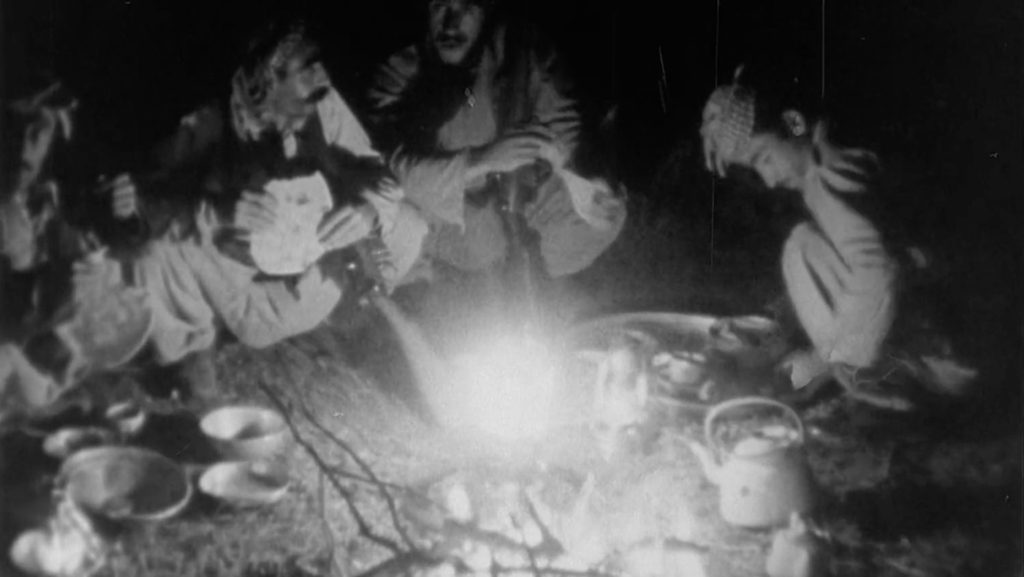
‘The Halgurd Warriors’ celebrated a resounding success. Their raid was covered in BBC World Service bulletins and in The Sunday Times of London. It was a public relations embarrassment for the British government and damaged Iraq’s economy.
